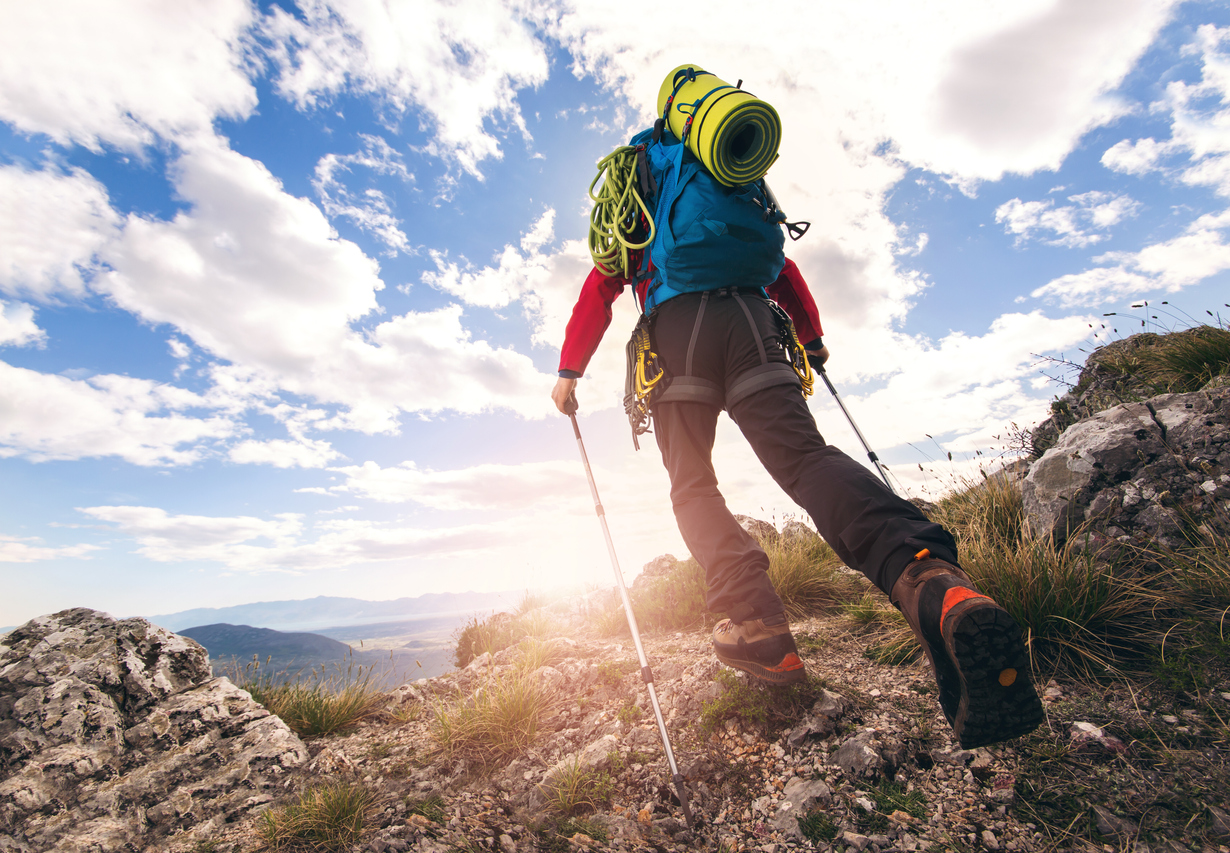Mountaineering for a Healthy Lifestyle
As spring transitions into summer, many families seek healthy activities and new adventures. For those who live in areas with some scenic elevation, mountain climbing offers a perfect way to improve one’s well-being while reconnecting with nature.
For the last 30 years, Dr. Melchiore Buscemi has called St. Lawrence County home. With the Adirondacks nearby and the Catskills and extensions of the Appalachian mountains a day trip away, this recently retired physician and founder of St. Lawrence Urology Associates has enjoyed biking, skiing, mountain climbing, and other exercises while living in beautiful Upstate New York.
5 Benefits of Mountain Climbing
Developing a Healthy Routine: Unless you already have recent mountaineering experience, avoid trying to climb the tallest summit on the first day. Before participating in a mountain hike that involves great distances or changes in elevation, engage in some exercises and physical training to strengthen your endurance and prepare your muscles and cardiovascular system for the mountain climbing you wish to do. Remember that what goes up must come down, so schedule regular exercise sessions to prepare.
Improving Mental Health: Mountaineering requires intense concentration, as you carefully navigate the trail, anticipate the distance to the next overlook, and prepare your body for ascending along a ridge. Time spent hiking on a mountain strengthens both physical and mental agility, as your body releases pleasure-stimulating endorphins and any obsessive or negative self-thoughts decrease. Stay focused on your goal, enjoy the view, and improve your self-esteem in the process.
Dropping Weight Efficiently: Far from the sedentary life one experiences in front of a television or computer screen, mountain climbing offers an effective way to manage and lose weight. The benefits of spending time at higher elevations include increased metabolism and reduced appetite. The body tends to process carbohydrates, fats, and proteins vigorously while engaged in mountain climbing. Acclimate properly, and pack plenty of water, proteins, and “healthy” carbs to keep your body at peak performance during your climb.
Reducing Heart Disease Risk: Climbing and walking increase the level of high-density lipoprotein (HDL) in your bloodstream. This good cholesterol assists your body by collecting low-density lipoprotein (LDL) — the bad cholesterol — and removing it from your body. By climbing and hiking, your body will also experience a lower level of triglycerides, the fats within the blood that may cause plaque levels to increase in your arteries, placing more pressure on your heart. Climbing higher on mountains lowers the threat posed by high levels of LDL and triglycerides.
Increasing bone density: Weight-bearing activities maintain calcium levels and strengthen bones. As you climb uphill against the force of gravity, the efforts of your muscles increase the density and resistance of your bones, especially in the legs and along your back. Having the correct posture while climbing also reduces the potential for osteoporosis.
Enjoy the Mountain Scenery
Dr. Buscemi encourages mountaineering as part of a holistic lifestyle that allows individuals to reach healthy summits.



